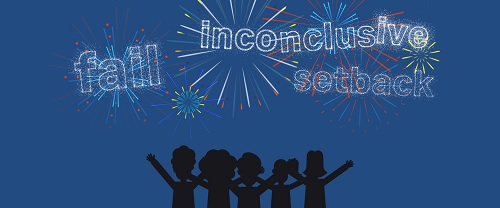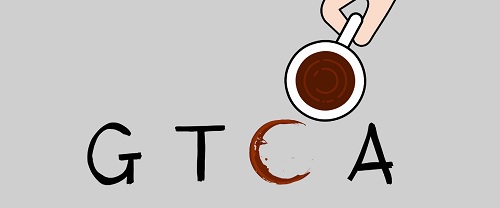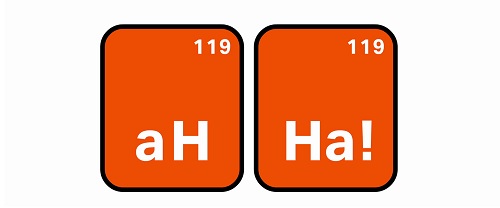Bob was depressed. As a high achiever, he wasn’t used to failure. But failing he was. And badly. The year was 1968 and try as he might he could not progress his research. During a pep talk with a senior scientist, the older man asked Bob “What percentage of an average scientist’s experiments do you think are successful?” Bob shrugged. “About one per cent,” came the reply. “And for the very best, the Nobel prize winners?” Another shrug. “Two per cent.”
Once over his shock, Bob embraced the lesson in failure so successfully he went on to become one of the most feted scientists alive today. During the past 50 years, Bob’s work identifying and understanding receptors (the parts of cells that receive hormones) has led to the creation of many drugs and saved countless lives. For studies of G-protein-coupled receptors, he and Brian Kobilka were awarded the Nobel Prize in Chemistry in 2012.
Currently a professor of medicine and biochemistry at Duke University and an Investigator of the Howard Hughes Medical Institute in the US, Bob is both a physician and a scientist. Having graduated from medical school at the top of his class, Bob seemed destined for a distinguished career in clinical medicine. The Vietnam War marked a turning point. Drafted into the US public health service, Bob was exposed to research, an area he had previously shunned. So began the second great professional passion of his life.
An accomplished storyteller, our conversation with Bob was filled with many wonderful anecdotes. He offered insights into why accepting failure is a vital part of a scientist’s training, what serving in the ‘Yellow Berets’ meant to him, and the role humor plays in discovery.
Your major breakthroughs were in an area of fundamental science but ended up impacting the world of clinical medicine in a profound way. How did that come about?
In the late 60s and early 70s, we knew that drugs such as adrenaline and morphine had specific actions and worked only on specific tissues. There were a number of us who thought there must be sites on cells, which we now generally refer to as receptors, into which these drugs must fit, like a key fit into a lock. But there was no evidence, and it was a very controversial idea. I became convinced they must exist. I set out to identify such receptors then find out how they worked. My entire 50-year career has been dedicated to those aims.
In 1986 my lab was able to clone the gene and cDNA for one particular receptor called the beta-adrenergic receptor. We discovered that the chain of amino acids which made up the receptor protein wove back and forth across the plasma membrane seven times.
There was only one other protein known at the time which had this very unusual arrangement. That protein was called rhodopsin, found only in the retina. It is a “receptor” for photons of light and allows us to see.
When we appreciated that two molecules as different as a receptor for adrenaline and a receptor for photons looked so similar, we realised that there might be a huge family of receptors that would be able to recognise all sorts of things.
This turned out to be true. Very rapidly my own lab identified and cloned about a dozen of these receptors for all sorts of molecules. From the work of others, based on our findings it was learned that receptors through which we taste and smell, and receptors for all manner of hormones, were members of the same family of receptors that we had discovered in 1986. These receptors are now generally referred to as G protein-coupled receptors.
And you might say, "Well that's all very interesting but what has that got to do with my everyday life?" And the answer is that these receptors are very druggable. Today about one-third of all drugs approved for use in the United States, that's about 700 drugs, target this family of receptors. So even though the research was just aimed at figuring out how these molecules work, in the end it had a profound impact on the practice of medicine.

Scientific discovery involves constant setbacks and doubt. How does a scientist maintain belief in their theories and in themselves?
If you're going to make a big discovery, you have to have a big hypothesis and big hypotheses are often very controversial. And so, it requires a certain obsessive personality to persist. That's good and bad because I'm wrong as often as I'm right. I always tell people, "If you believe in something, it feels the same whether you're right or wrong, until you find out."
I was quite a young man when I was doing my most important work. That's very common. In fact, it's the rule. In some fields, it's even more dramatic than in biology. In mathematics and physics, you're pretty much over the hill by the time you're in your late 20s or early 30s.
When I look back on what I did, the odds of succeeding, I don't think I would have the chutzpah today to take on something like that. But at the time it never occurred to me that I wouldn't succeed. The only question in my mind was “when?”
You knew from a young age you wanted to be a doctor. What inspired you to follow the medical path?
I experienced what in retrospect was a calling to medicine when I was probably eight or nine years old. All I knew was that I worshipped my family physician, a man named Dr Joseph Feibush who practiced family medicine in the Bronx. He knew all this stuff that nobody else knew. He could write prescriptions that nobody could read and they would make you feel better. I was already interested in science. I had a little toy microscope and a chemistry set. I said, "What could be better than that?"
That was a very clarifying vision for a kid because it meant I never had to worry about what I was going to do. I was on a straight course. I would say the happiest time in my whole education was when I was in medical school because I was finally realising my dream to become a physician. At that point, I had absolutely no interest in becoming a scientist.
And then history intervened. How did the Vietnam war affect your career?
I graduated from medical school in 1966, the peak of the war. There was a lottery draft for men over 18. You might go, you might not. But for physicians there was no lottery. All physicians were drafted.
Many of us demonstrated against the war, it was felt to be immoral. One of the only legal ways for physicians to avoid serving in Vietnam was to be drafted into the United States public health service as a commissioned officer. But as you can imagine, it was very competitive to get those commissions.
Because I had gone to a great medical school and had good recommendations, I got a commission in the public health service at the National Institute of Health. There we had a hybrid existence. Twenty per cent of our time was spent taking care of patients but the other 80 per cent we were assigned to a laboratory. That's where I began to experience my second calling.
The first year and a half was an unmitigated disaster. Nothing I tried worked and this was a new experience for me. I had never failed, really, especially in a prolonged way, at anything I had tried in my life to that point. Now I know that most of what we do in science is failure. But this is one of the most difficult lessons for young scientists to learn.
Eventually, I started to succeed, and I began to get a taste of just how exciting research could be. Then my two years were up and I moved to Boston for further training in Internal Medicine and cardiology.
My epiphany occurred about six months after I returned to full-time clinical medicine.
I realised something was missing. I missed the excitement and the intellectual challenge of struggling with a research problem. So after completing my training I moved to Duke University where things really took off in the laboratory. And as they say, the rest is history.
Around the time you were there, the National Institute of Health produced a raft of remarkable scientists. What was so special about that period?
At the NIH we were the so-called “Yellow Berets”. Yellow was supposed to denote cowardice because we didn't go to Vietnam, but it came to be very much a badge of honor.
It was a remarkable time because the program put together brilliant mentors, senior scientists of great distinction, with the best and brightest of the youngest members of the American medical enterprise. They basically had the top students from every medical school.
My class contained four future Nobel Laureates. Myself, Mike Brown and Joe Goldstein who discovered the LDL receptor, and Harold Varmus who discovered oncogenes, the cancer-causing genes. And there was one other guy you may have heard of in that class, his name is Tony Fauci.
Your career is based on an interesting duality. What’s the relationship between the two parts of your professional life, physician and scientist?
The two aspects fulfill somewhat different needs that I have. To me, the practice of medicine is about the highest calling you could have. Bringing comfort to a suffering human being. It's a very special relationship.
But there was some deep yearning that medicine was not fulfilling. I could not, within the bounds of clinical medicine find a creative outlet. In general, medicine is all about following certain standards of care. Given a patient with diabetes, you do this. Given a patient with heart failure, you do that. And as long as you follow the prevailing norms, nobody can ever get you for malpractice.
In research, it's exactly the opposite. If you do anything the way anybody else did, that's confirming somebody else's data. That gets you nowhere. You have to be the first to do something.
So what I derived from the practice of medicine and what I derived from research were rather different things. One is the ultimate humanistic activity, the other is the ultimate intellectual or creative activity.
You’re a great believer in the importance of interpreting data creatively. Can you tell us about the role storytelling plays in both medicine and research?
I had a really formative experience when I was a third-year medical student. On the first day of rounds with the attending physician, one of my fellow students presented a case and we discussed it. When we were done, the attending doctor turned to me and said, "Mr Lefkowitz, you've heard all the facts of the case, I'd like you to re-present the case but tell me a different story."
I looked at him like, "What are you talking about? The story is the story. You heard it." He said, "I want a different story. The only proviso is you can't change any of the facts but I want a different story."
I was tongue-tied so he turned to one of the other students. Nothing. Then he showed us. He took the facts of the case and presented them in a different sequence with a different emphasis. Although it was the same patient and the same facts, it was a different story. And in fact, it led us to a different diagnosis
Data is not a story, data's just data. It takes creativity and analytic skills to arrange data in a certain order to make a story.

Significant breakthroughs obviously involve a lot of hard work, but what do you think about the role serendipity plays in scientific research?
Serendipity to me is the coming together of events in a way that is not under your conscious control and opens up whole new avenues to be explored.
Take the old story of Fleming discovering penicillin. He found that in certain parts of his agar plate the bacteria weren't growing. On the one hand, this was an annoyance. On the other hand, it turned out it was due to some mold that was serendipitously also growing on the plate as a contaminant and was secreting an antibiotic which was killing his bacteria. He might have looked at that and said, "What a pain in the neck, the bacteria aren't growing" and thrown out the plate and gone on with his business.
I have been so fortunate in my career to be blessed with serendipitous findings over and over again. I'm in a constant state of awareness and arousal watching for serendipitous things. One of the things I try to teach to my students is how to open yourself up to serendipitous gifts.
To know it's just a matter of time, it's coming, you'd better be ready for it. I daresay if you look back through the annals of important scientific discoveries, you would find serendipity at every turn.
You’re renowned for your sense of humor. How does humor feature in your work?
There's an interesting relationship between humor and discovery. The key to humor is a certain irony and the juxtaposition of things you wouldn't ordinarily put together. Seeing things from a different angle. Of course, those are also essentially the key elements of discovery.
We have the expression, ‘Oh, I see the joke.’ And in the moment you see the joke, you're making a little discovery. It's a discovery the person who told the story has already made, and now you get it. I find that the more I use humor with my trainees the more it gets the creative juices flowing.

On a more serious note, how does it feel for so many people to have benefited from drug treatments based on your research?
When I look back over my career and I think of the number of patients whose lives I could have influenced if I had been a full-time practitioner of medicine, maybe it would be a few thousand. But the work that I've done, which underlies a third of all drugs that are used today, I've reached millions, tens, hundreds of millions of patients in one way or another. So that makes it gratifying at a whole additional level.
Finally, you’ve talked before about the ‘usefulness of useless knowledge’. Why is our obsession with finding answers so important for human progress?
Nobody can know in advance what the ultimate utility of a new finding will be. Most of the discoveries that have transformed medicine over the centuries have been fundamental discoveries made by people who weren't trying to cure a disease. I mean, take the receptors that I worked on. I was not specifically trying to develop a drug or cure a disease. I just wanted to understand. ‘Why’ is the basis of all science.
At 77, Bob is still asking ‘why?’ Encouraged by his mentorship, young scientists are learning to embrace failure and spot the unexpected result that could lead to the goldmine. Perhaps that is his greatest legacy. The passing on, not of knowledge (as Bob says “anyone can learn that”), but of the ability to recognise serendipitous gifts. So, if you want to know where the next big discovery is coming from, keep an eye on the scientists emerging from the laughter-filled offices of one Robert J. Lefkowitz.